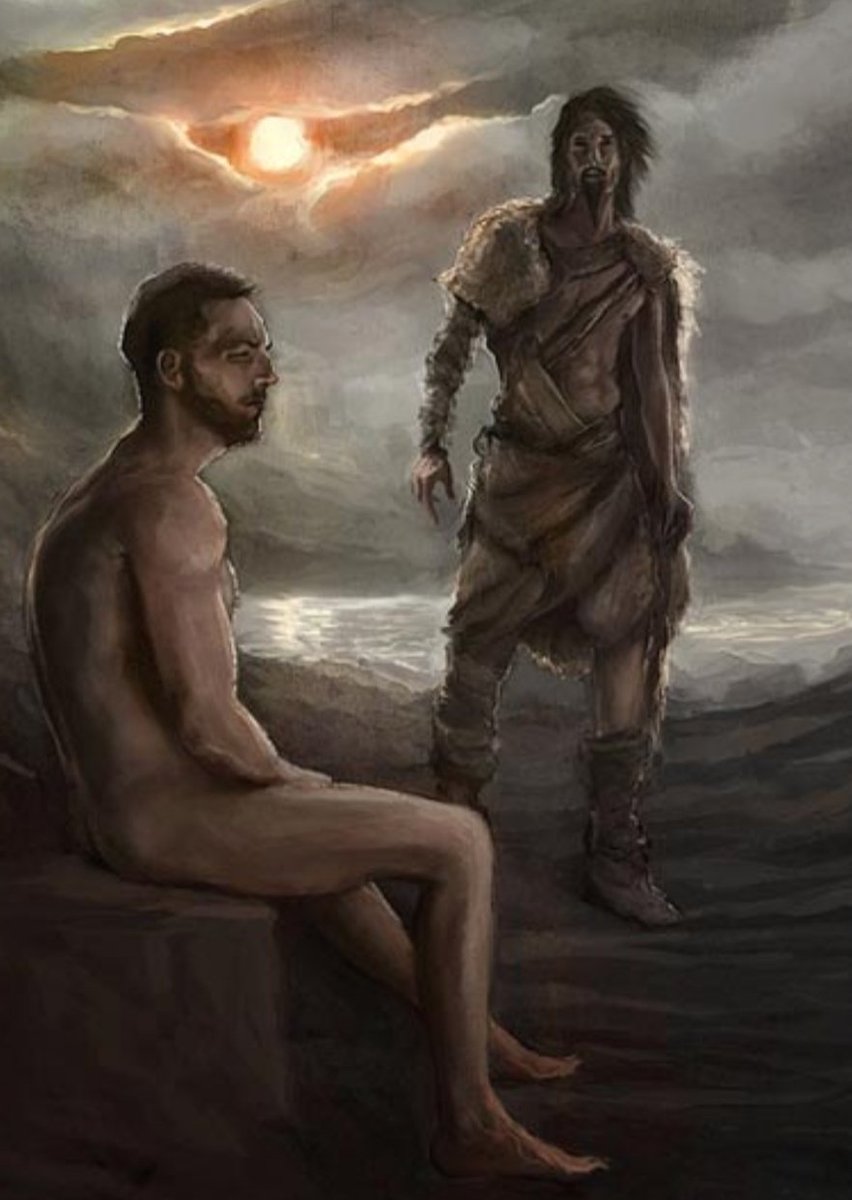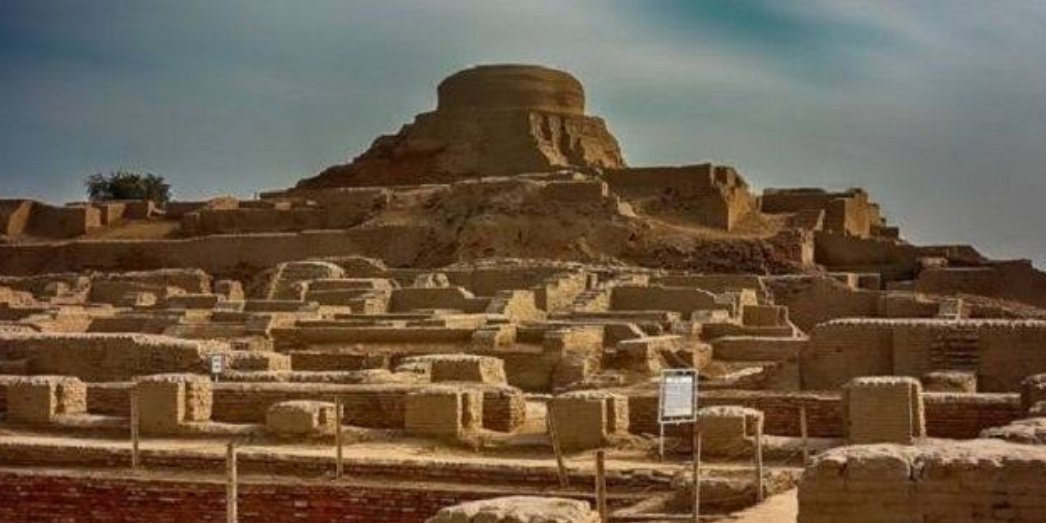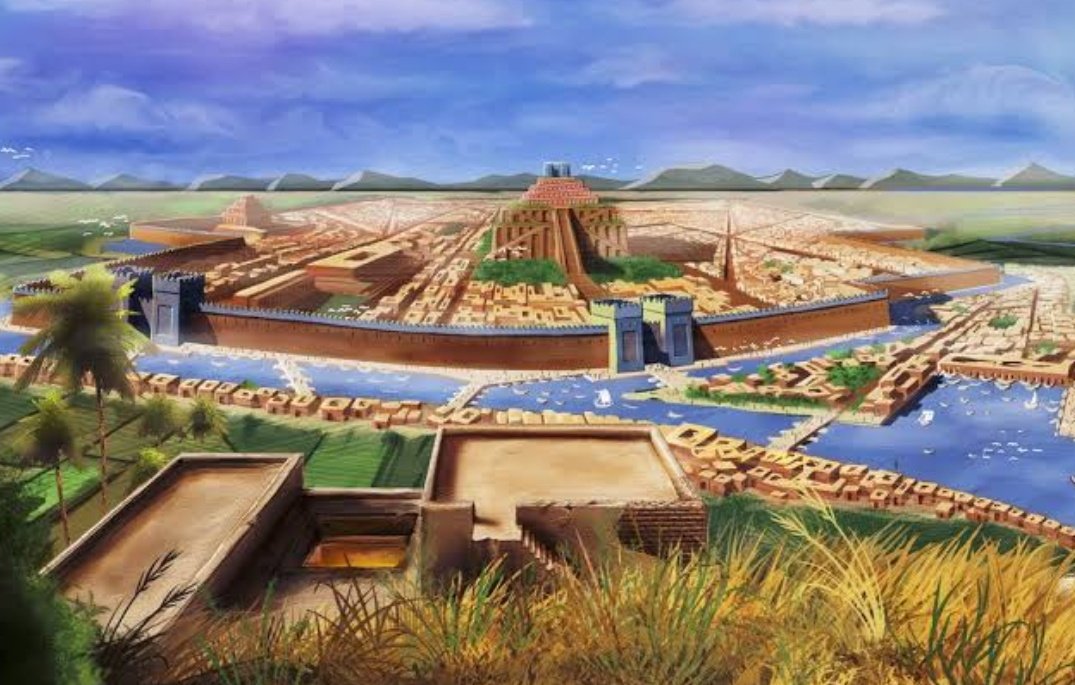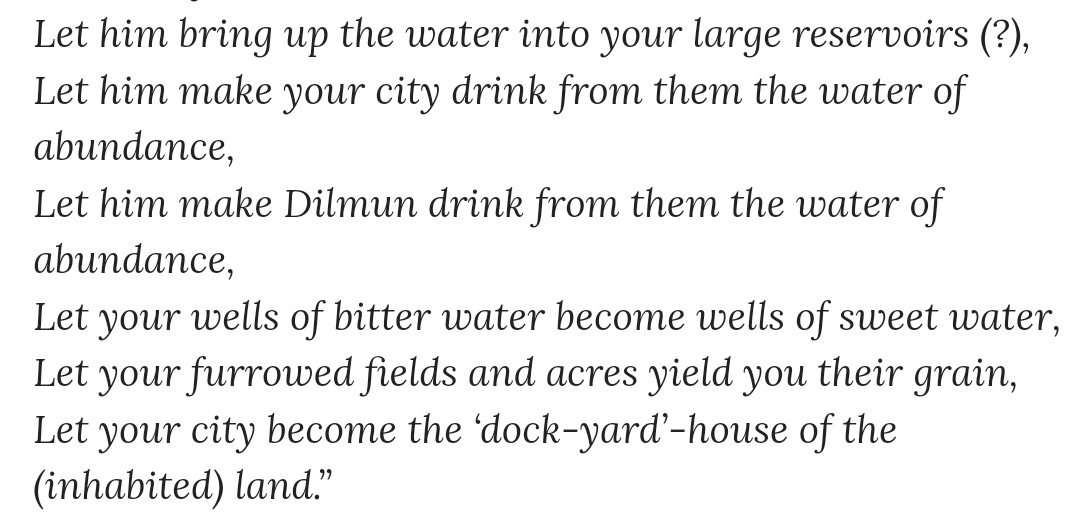Bahrain, can be described as a tiny nation, mostly low-lying and made up of 33 islands. Climate is relatively hot all year round and the winters barely touch 14°C at times.
But, it was also known as 'Eden' and 'Garden of Gods' at one point in history.
But, it was also known as 'Eden' and 'Garden of Gods' at one point in history.
The old name for the region was Dilmun. Which was often described as "the land where the sun rises", "land of the living" and "land of eternal youth".
What was it about this tiny desert country that caused people to refer to it as such?
What was it about this tiny desert country that caused people to refer to it as such?
It was believed that Ancient Sumerians originated from Dilmun, and scattered all over Mesopotamia. Their God Enki was born in Dilmun, therefore it was considered sacred already.
As it goes:
As it goes:
In Sumerian mythology, the hero Gilgamesh (equivalent to the Greek Hercules) sets out to find out about the secret of immortality.
This secret is safe with a man called Ut-napishtim, an immortal himself residing in Dilmun.
The first reference of Dilmun as an earthly paradise.
This secret is safe with a man called Ut-napishtim, an immortal himself residing in Dilmun.
The first reference of Dilmun as an earthly paradise.
Land of the living, as the legend goes.
Still, the question remains - why Dilmun? Why not, any of the other great cities lying on the Fertile Crescent at the time?
Still, the question remains - why Dilmun? Why not, any of the other great cities lying on the Fertile Crescent at the time?
You have to remember that Dilmun was an important trading centre. Dilmun is where the first contact between the Arab world and the Indian Subcontinent took place.
Trade links between Ancient Mesopotamia and the Indus Civilization, were established then, through Dilmun.
Trade links between Ancient Mesopotamia and the Indus Civilization, were established then, through Dilmun.
The region was quite prosperous in the 2nd and 3rd millennium BC. Rich in copper and wood, and successfully trading in gemstones (Lapis Lazuli from Afghanistan), ivory, gold and grains.
It was already understood that the Sumerians were the superior lot in the region
It was already understood that the Sumerians were the superior lot in the region
Not just because of trading, but because of their written script, "the cuneiform" as we know it today.
One characteristic of a successful civilisation is their language. Written language ensures that records are kept behind, for future generations to come.
One characteristic of a successful civilisation is their language. Written language ensures that records are kept behind, for future generations to come.
A verse from the Epic of Gilgamesh goes:
"In Dilmun the raven utters no cry,
The wild hen utters not the cry of the wild hen,
The lion kills not,
The wolf snatches not the lamb,"
(An artist's depiction of Dilmun)
"In Dilmun the raven utters no cry,
The wild hen utters not the cry of the wild hen,
The lion kills not,
The wolf snatches not the lamb,"
(An artist's depiction of Dilmun)
With the above verses one can hypothesized that there was an established set of rules, law and order maintained in the region at that time.
Murder, Stealing and Dishonesty was looked down upon, and perhaps punished accordingly.
Murder, Stealing and Dishonesty was looked down upon, and perhaps punished accordingly.
To most who believe in the afterlife, a place exempt from all such vices and prosperity through and through, must be Paradise after all......right?
The Ancients Sumerians believed it to be so.
It's another thing that Dilmun declined as it's trade value decreased with time.
The Ancients Sumerians believed it to be so.
It's another thing that Dilmun declined as it's trade value decreased with time.
Remaining verses from the Epic of Gilgamesh:
"Water of abundance", a reference to the many islands in the region perhaps?
"Water of abundance", a reference to the many islands in the region perhaps?
To summarise it all:
The tiny country you never thought much of; a stretch of land no bigger than the state of California itself; this little desert oasis in the heart of the Persian Gulf, Bahrain or Dilmun was once considered Paradise of the Ancient World.
The tiny country you never thought much of; a stretch of land no bigger than the state of California itself; this little desert oasis in the heart of the Persian Gulf, Bahrain or Dilmun was once considered Paradise of the Ancient World.
The next time you visit the region, think of how Enki sprung from its sand dunes, think of how sacred its waters were once, and think of how You, an insignificant being; are standing in the "Garden of Gods".
tiny correction: 33 artificial islands and 51 natural islands***

 Read on Twitter
Read on Twitter









